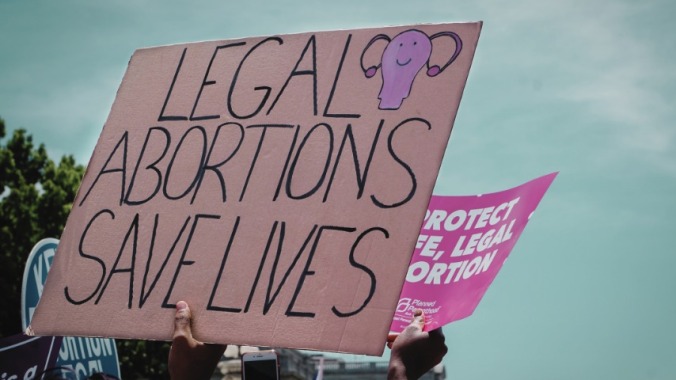Here’s Your (Bleak) 2025 Reproductive Rights Preview
On both the state and federal levels, anti-abortion lawmakers are gaining more power and getting more creative than ever.
Photo: Getty Images AbortionIn DepthPolitics
No matter who won the White House in November, the state of our reproductive rights was always going to be dire. Almost half of states have total or near-total abortion bans, and now, with Donald Trump returning to the White House, we can expect abortion access to come under attack at the federal level too. After all, Trump is bringing along key architects of the far-right Project 2025 agenda, which outlines a range of disturbing pathways for the president—without Congress—to ban abortion and restrict birth control.
But it’s not just the federal level: As states where abortion remains legal attempt to shore up their protections for reproductive rights under Trump, abortion-banned states are doing everything they can to trap residents under their laws.
Policy and legal experts at the State Innovation Exchange (SIX), If/When/How, and Pregnancy Justice are following a range of trends in state legislatures, at the local level, and across the court system, and offered their insights on what we should brace ourselves for this year. “We should expect the worst, which I don’t say as a cop-out, but because that’s the way all of these bills are written,” Farah Diaz-Tello, senior legal counsel at If/When/How, told Jezebel.
Here’s a snapshot of what that might look like.
States that passed abortion ballot measures now have to adopt them
Groups in Idaho are trying to put an abortion rights ballot initiative up for a vote in 2026. Republicans have introduced a bill to raise the threshold for passage from 50 to 60% — the same policy that helped Florida defeat a similar amdmt last year. https://t.co/WEXVnQEmMM
— Alice Miranda Ollstein (@AliceOllstein) January 8, 2025
In November, 10 different states voted on ballot measures to enshrine abortion rights, and seven passed them. Missouri, which enacted a total abortion ban in 2022, passed its abortion rights measure but now faces the uphill battle of repealing its ban. This requires action from the state legislature, SIX’s Rosann Mariappuram told Jezebel—not just to repeal Missouri’s ban, but also to repeal abortion restrictions that predate the ban. One key restriction bars clinics from providing abortion services if they don’t have contracts with nearby hospitals, some of which are religious institutions that refuse to perform the procedure.
This won’t be easy: Anti-abortion officials in other states that have passed abortion rights measures, like Ohio, have waged lengthy court battles to keep their bans in place, which can stretch for years. Missouri abortion rights advocates will likely face similar hurdles in both courts and the legislatures, Mariappuram says. The other states that passed abortion rights ballot measures—in Arizona, Colorado, Maryland, Montana, Nevada, and New York—will likely have to wrangle with their own legal challenges or bills from Republican lawmakers to dispute these measures.
Diaz-Tello further warned that, given the strong electoral success of these measures, we can expect Republican state legislators to “try to shift the goal posts to make it harder” for these measures to pass. Just last week, Idaho introduced a bill to increase the threshold for ballot measures to pass from a simple majority to 60%. State Rep. Bruce Skaug (R), who introduced House Bill 2, said the citizen-led initiative process was too influenced by out-of-state money and that this would “level the playing field.” This is the same as the 60% threshold Florida passed in 2006; while Florida’s requirement wasn’t initially passed to thwart abortion rights, it’s why the state’s abortion rights measure narrowly failed in November, despite receiving 57% of the vote
-

-

-

-

-

-

-

-

-

-

-

-

-

-

-

-

-

-

-

-

-

-

-

-

-

-

-

-

-

-

-

-

-

-

-

-

-

-

-

-













































